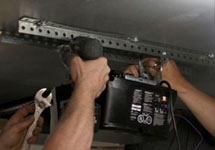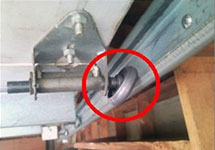In the world of garage doors, certifications serve as a cornerstone for safety, quality, and reliability. Whether you’re a homeowner looking for a new garage door or a contractor installing them, understanding these certifications can help you make informed decisions. But what do these certifications mean, and why are they so important? This blog will decode the essentials of garage door certifications and their significance in upholding industry standards.
What Are Garage Door Certifications?
Garage door certifications are official endorsements that signify a product’s compliance with specific safety and performance standards. These certifications are granted by recognized organizations after rigorous testing and evaluation. Certifications act as a mark of trust and reliability for both residential and commercial garage door systems.
Key Certifying Bodies:
- Underwriters Laboratories (UL): Focuses on safety and functionality.
- American National Standards Institute (ANSI): Sets voluntary consensus standards.
- Door and Access Systems Manufacturers Association (DASMA): Develops technical standards specifically for the garage door industry.
Each of these organizations plays a critical role in ensuring that garage doors meet the demands of modern safety, durability, and performance expectations.
Importance of Certifications
- Safety Assurance
Certified garage doors meet stringent safety requirements, reducing the risk of accidents like door malfunctions or injuries. For example, UL-certified doors are tested to ensure they include proper safety sensors and other protective features. This is especially critical for families with young children or pets.
- Quality and Durability
Certification often means the door has undergone rigorous durability testing, ensuring it can withstand environmental stresses and regular use. High-quality materials and construction methods are usually a hallmark of certified products.
- Code Compliance
In many regions, local building codes require compliance with ANSI or DASMA standards for installation. By adhering to these codes, you can avoid costly fines or the need for future replacements.
- Energy Efficiency
Certifications like ENERGY STAR® ensure that garage doors contribute to energy savings by improving insulation and reducing heating and cooling costs. This is an important consideration for homeowners looking to lower their utility bills.
Commonly Used Standards in Garage Doors
- Wind Load Certification:
- Essential for doors installed in areas prone to hurricanes or strong winds.
- Ensures the door can withstand specific wind speeds and protect your property from extreme weather conditions.
- Fire-Resistance Certification:
- Required for doors used in commercial settings or as part of fire-rated walls.
- These doors can prevent the spread of fire for a specific amount of time, adding an extra layer of safety.
- Insulation Standards (R-Value):
- Measures thermal resistance, crucial for energy-efficient garage doors. A high R-value means better insulation, which can improve indoor comfort and reduce energy usage.
- Automatic Reversal Systems:
- A must-have feature ensuring the door automatically reverses when an obstruction is detected, minimizing the risk of injury or damage.
Why Homeowners and Contractors Should Care
Investing in certified garage doors can save time and money in the long run. Homeowners get peace of mind knowing their doors meet high safety and performance standards, while contractors avoid potential liabilities by installing compliant products. Additionally, certified garage doors often come with comprehensive warranties, which further underscores their quality and reliability.
How to Verify Certification
When purchasing a garage door, look for certification labels on the product or packaging. Additionally, consult with reputable manufacturers or dealers to confirm compliance with local codes and standards. Trusted professionals can also help you navigate the various certifications and choose a product that fits your specific needs.
The Door Company Commitment
At The Door Company, we understand the importance of providing our customers with certified, high-quality products. Our garage doors are designed and manufactured to meet or exceed industry standards, ensuring safety, durability, and style. Whether you’re looking for a residential or commercial solution, our team is here to guide you every step of the way.
Conclusion
Garage door certifications play a pivotal role in maintaining industry standards, ensuring that products are safe, durable, and reliable. By understanding these certifications, homeowners and industry professionals can make informed decisions that prioritize safety and quality.
At The Door Company, we are committed to providing certified garage doors that meet or exceed industry standards. Contact us today to learn more about our certified products and services.
Ready to upgrade your garage door? Explore our certified options today and experience the perfect blend of safety, quality, and performance!



